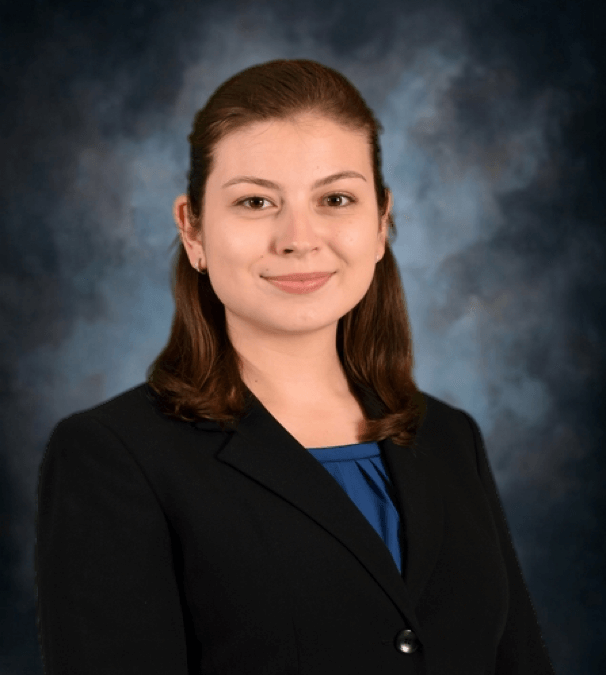Monika Kizerwetter
Cancer Scholars Program
How did you get involved in the Cancer Scholars Program?
I was invited to apply to the Cancer Scholars Program before my freshman year. I submitted the application and was accepted. Through the program, we listen to faculty members speak about their research. I was really interested in my current PI’s work when he visited and what he was doing, so I asked if I could join and it worked — joining the program really opened that door for me.
What cancer research projects are you working on right now?
I am working with Dr. David Kranz on engineering an antibody against a tumor-specific glycopeptide. When you have an antibody, it’s generally thought of to be in a y-shape, so what I’m doing, essentially, is taking one of the arms of the y-shape and engineering it to bind better to something that has been found to be expressed on cancer cells.
You usually have a sugar on the cell surface with a long extension of other sugars bound to it. But it has been found that with cancer, that long extension that’s on that original sugar is gone. So, I’m trying to engineer an antibody to bind to that remaining fragment better.
How long will that project last?
It depends on how much time you can put into it. I have been working on a variation of this project since my freshman year. During the first round of engineering we pulled out something that binds somewhat better. Now I’m going in again and repeating everything to see if we can get something that binds even better than what we already have.
How will this project impact cancer research?
Engineered antibody fragments against tumor-specific epitopes on cancer cell surfaces can then be put into T-cell receptors to develop things called chimeric antigen receptor T cells, or CAR T cells. Right now, a big thing in cancer therapy is developing immunotherapies to re-awaken the immune system to the developing tumor. It’s essentially taking out T cells that the patient has in their body and introducing this receptor to their T cells, putting it back in their body, and then having a T cell that is specifically targeted towards cancer cells.
It’s a new field and a new therapy, so there’s definitely some issues with it. We get cancer diagnoses every day. We need to allow our immune system to recognize cells that have gone off the correct path and kill them. When we actually develop cancerous tumors, our immune system can no longer recognize the tumor is growing. The thought is that, with therapy, we can reawaken the immune system by having things specifically targeted to the tumor.
How has the Cancer Scholars Program helped you?
I think it’s definitely opened a lot of doors for me and introduced me to people I would have never been able to speak with before. Even my PI now, I wouldn’t have known him had I not been in the Cancer Scholars Program. Also, the extra classes we have helps with my research. It’s definitely been helpful during my college experience.
What do you plan to do after graduation?
After graduation I am hoping to pursue a PhD perhaps in either immunology or bioengineering. I would like to stay within the realm of amino-engineering and developing therapy for things like cancer and perhaps even autoimmunity.
Are you involved in any other research activities outside of the Cancer Scholars Program?
I did research this summer at the Mayo Clinic. I’m was in the immunology department working on two different projects, one of them deals with immunosuppression and colon cancer and the other one deals with T cell development with different dissilation proteins.
Do you have any hobbies on campus?
I’m one of the lead student workers for the organic chemistry teaching lab. I set up all the teaching labs for the school of chemical sciences. I’m also one of the English horsemanship coordinators for the Illini Equestrians, which is the equestrian club we have on campus.

